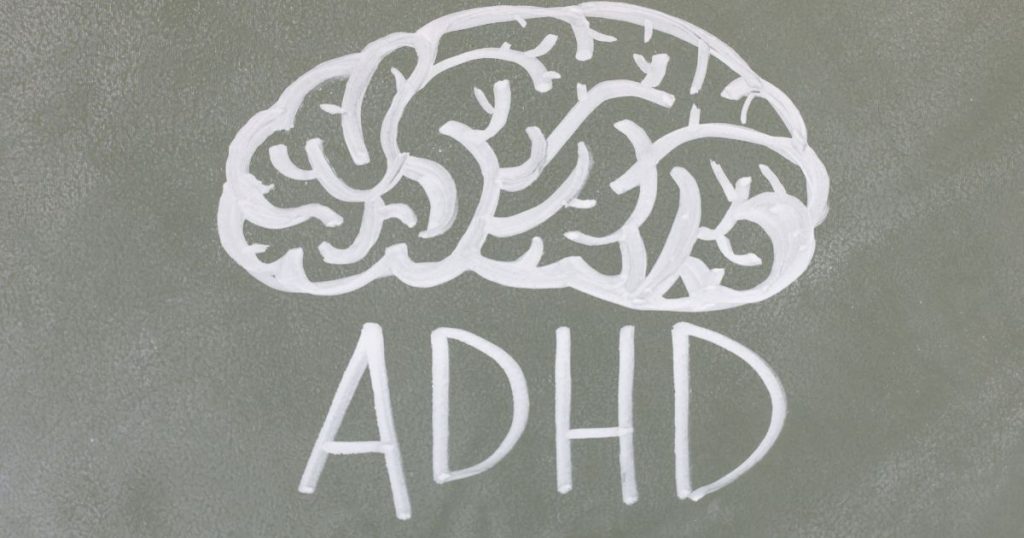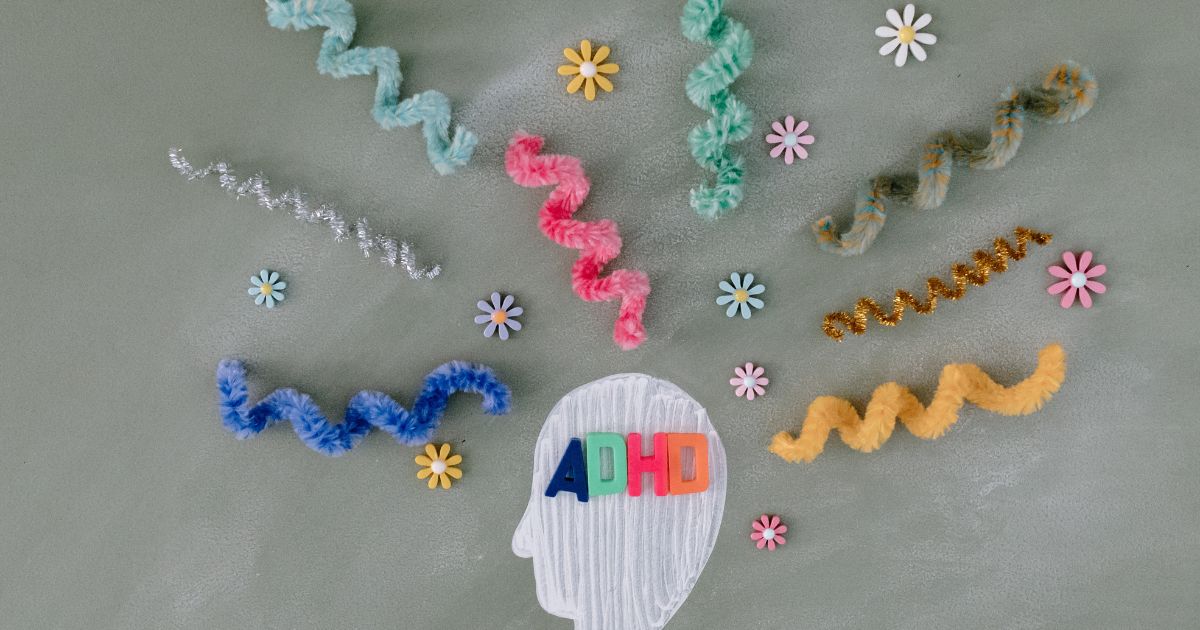Navigating the complexities of social interactions can be challenging for anyone, but it can pose even more significant difficulties for young adults with Attention-Deficit/Hyperactivity Disorder (ADHD).
However, hope shines through in the form of The PEERS (Program for the Education and Enrichment of Relational Skills) Program – an innovative social skills training program designed specifically for young adults.
The PEERS Program goes beyond traditional approaches, offering a comprehensive curriculum that equips individuals with ADHD with the necessary tools and strategies to foster meaningful connections and confidently navigate social situations.
From improving conversation skills to understanding nonverbal cues and managing emotions, participants benefit from evidence-based techniques tailored to their unique needs.
This blog will explore how this program can help you improve your social skills using particular strategies and more, so stay tuned!
PEERS & ADHD: How the Program Helps Improve Social Skills

Attention-Deficit/Hyperactivity Disorder can present unique challenges regarding social interactions. Fortunately, the PEERS program has emerged as a valuable resource in improving social skills for ADHD.
This evidence-based program provides practical strategies and techniques to effectively enhance social understanding and navigate social situations.
The PEERS program offers structured sessions that cover a wide range of skills, including conversation starters, nonverbal communication, handling conflict, and making and maintaining friendships.
By targeting the specific needs of individuals with ADHD, the program helps participants build self-confidence, develop empathy, and improve their overall social competence.
In this section, we will explore the transformative impact of the PEERS program, shedding light on its proven methods and the positive outcomes it brings to individuals with ADHD, ultimately empowering them to thrive socially and build fulfilling relationships.
Improved Communication Skills in Individuals With ADHD
Individuals with ADHD often struggle with communication skills, facing challenges in expressing themselves clearly, staying focused during conversations, and listening attentively. However, proper support and strategies can significantly improve their communication abilities.
Firstly, individuals with ADHD can benefit from developing active listening skills. They can enhance their understanding and engagement in conversations by consciously focusing on the speaker, maintaining eye contact, and providing verbal and non-verbal cues.
Moreover, individuals with ADHD can learn to organize their thoughts before speaking. Practicing techniques such as pausing, reflecting, and structuring their ideas can help them communicate more effectively, ensuring their message is clear and concise.
Additionally, visual aids and technology can assist individuals with ADHD in communicating their thoughts. Utilizing tools like charts, diagrams, or electronic devices with reminders and prompts can aid in staying organized and on track during conversations.
Enhancing Social Interactions Through PEERS Program

The PEERS Program is a valuable initiative to enhance social interactions and promote social skills for ADHD development among individuals. The PEERS Program fosters positive peer interactions and strengthens social connections by creating a supportive and inclusive environment.
Through structured activities and group discussions, participants in the PEERS Program learn essential social skills, such as initiating conversations, active listening, and empathy. They also gain a deeper understanding of social cues, non-verbal communication, and perspective-taking.
One of the key strengths of the PEERS Program is its emphasis on peer support. Participants can practice their newfound skills in a safe and supportive setting, receiving peer feedback and guidance. This peer-to-peer interaction enhances their social competence and helps build self-confidence and self-esteem.
Furthermore, social skills therapy for ADHD encourages the development of meaningful friendships and social networks. By engaging in shared interests and common, everyday activities, participants are likelier to establish connections and develop a sense of belonging.
Developing Interpersonal Relationships
Developing friendships and relationships is a fundamental aspect of human interaction that brings joy, support, and a sense of belonging. Building and nurturing friendships requires effort, time, and genuine connection.
One of the keys to developing friendships is shared interests or activities. Engaging in hobbies, sports, or joining clubs and organizations allows individuals to meet like-minded people and establish common ground. Participating in group activities provides opportunities for interaction and fosters the development of friendships.
Another crucial factor in building friendships is effective communication. Active listening, expressing oneself clearly, and showing empathy are vital skills contributing to meaningful connections. Being attentive to others’ needs, interests, and emotions helps foster trust and understanding, forming the foundation of solid friendships.
Consistency and reliability are essential in developing friendships. Being there for others, offering support during difficult times, and celebrating their successes helps create a bond of trust and dependability.
Strategies Used in the PEERS Program for ADHD
For individuals with ADHD, improving social skills can be a daunting task. However, the PEERS program offers a beacon of hope by employing a range of proven strategies designed to address the unique social challenges faced by individuals with ADHD.
In this section, we will explore the powerful strategies used in the PEERS program to unlock the social potential of individuals with ADHD. Join us as we delve into the transformative process of the PEERS program, opening doors to a world of improved social competence and fulfillment.
Social Skills Training Techniques in the PEERS Program
The PEERS Program incorporates various social skills training techniques to help individuals develop and refine their social abilities. One fundamental approach is role-playing, where participants engage in simulated social situations and practice appropriate behaviors, responses, and problem-solving strategies.
Role-playing allows individuals to gain firsthand experience and build confidence in handling real-life social interactions. Another technique utilized is video modeling, where participants watch videos showcasing positive social behaviors and interactions.
This visual representation helps individuals with ADHD better understand and emulate desired social skills, such as active listening, maintaining eye contact, and using appropriate body language.
The program also focuses on providing explicit instruction and feedback. Clear explanations and demonstrations of social skills are provided, followed by constructive feedback to reinforce desired behaviors and suggest improvements.
Group discussions and peer feedback are integral components of the program. Participants engage in conversations, share experiences, and receive input from their peers, fostering a supportive and collaborative learning environment.
Role-Playing and Behavioral Rehearsal in PEERS Program

Role-playing and behavioral rehearsal are essential components of the PEERS program. These techniques provide individuals with ADHD practical opportunities to practice and refine their social skills in a safe and supportive environment.
During role-playing exercises, participants engage in simulated social scenarios, taking on different roles and practicing appropriate behaviors, responses, and problem-solving strategies. By acting out these situations, individuals with ADHD can gain firsthand experience and build confidence in handling real-life social interactions.
Role-playing allows them to experiment with different approaches, receive feedback, and refine their skills in a controlled setting. Behavioral rehearsal takes role-playing a step further by focusing on specific skills or situations that individuals may find challenging.
Participants repeatedly rehearse desired behaviors and responses with program facilitators’ or peers’ guidance and support. This practice enables individuals to develop automaticity in their social skills, making it easier to apply these skills in real-life situations.
Teaching Problem-Solving and Conflict Resolution in the PEERS Program
Teaching problem-solving and conflict-resolution skills is crucial to the PEERS program. Individuals with ADHD often face challenges navigating social conflicts and finding effective solutions. The PEERS program addresses this by incorporating strategies to develop problem-solving and conflict-resolution abilities.
Participants learn a systematic approach to problem-solving: identifying the problem, generating potential solutions, evaluating their pros and cons, selecting the best course of action, and implementing it. This structured approach helps individuals with ADHD break down complex social issues into manageable steps, enabling them to approach conflicts effectively.
The PEERS program also teaches conflict resolution techniques, such as active listening, expressing thoughts and emotions assertively, and finding mutually beneficial compromises. Through guided practice and role-playing exercises, individuals with ADHD gain practical experience resolving conflicts and developing positive outcomes.
By teaching problem-solving and conflict-resolution skills, the PEERS program equips individuals with ADHD with valuable tools to navigate social challenges, maintain healthy relationships, and foster positive interactions. These skills empower them to handle conflicts constructively, communicate effectively, and find mutually satisfactory resolutions in various social settings.
Studies Evaluating the Effectiveness of the PEERS Program for ADHD
Several studies have evaluated the effectiveness of the PEERS program for individuals with ADHD. One such study published in the National Center for Biotechnology Information, examined the program’s impact on social skills and social functioning in adolescents with ADHD.
The study found that participants who underwent the PEERS intervention showed significant improvements in social skills, including initiating and maintaining conversations, making friends, and managing conflict.
Additionally, they exhibited enhanced social functioning and decreased social difficulties. These findings highlight the positive outcomes of the PEERS program in addressing the social challenges faced by individuals with ADHD.
The study provides empirical evidence supporting the effectiveness of the PEERS program as an intervention to improve social skills and functioning in this population.
Enrollment and Participation in the PEERS Program
Enrollment and active participation in the PEERS program can be a transformative experience for individuals seeking personal and social growth. This unique program provides a structured platform for enhancing social skills and fostering meaningful connections.
Through a combination of evidence-based strategies, participants can develop effective communication techniques, strengthen friendships, and build a supportive network. The PEERS Young Adult Social Skills program, provided by Burns Virtual Psychological Solutions, equips individuals with the tools to navigate social interactions confidently and successfully. If you’re ready to take a proactive step towards improving your social abilities and overall well-being, don’t hesitate to enroll in the PEERS program today.









